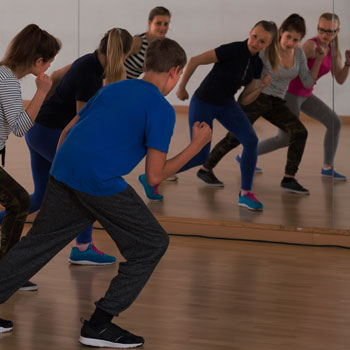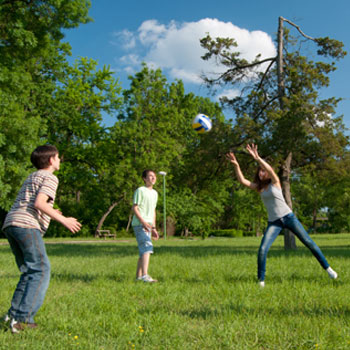This results in three main research questions:
- Which contexts for and conditions of the learner affect learning either positively or negatively?
- How can the context for and the conditions of the learner be influenced so as to optimize learning?
- What is the role of genetics in learning?
These research questions will be investigated in to be designed longitudinal observational studies as well as in randomized controlled (intervention)trials. Above, we use existing databases.
Background
Optimal learning is influenced by several contexts and conditions as also stated in the concept research agenda Brain, Cognition, and Education initiated by NRO and NWO (2016). To make learning as efficient, effective, and enjoyable as possible, it is imperative that the exact relationship between the context and conditions on the one hand, where the personal learning capacity of the learner is also taken into account, and optimal learning on the other are investigated and that recommendations are formulated which are applicable in educational and instructional practice.
The research topic ‘Biopsychology of Learning’ is situated at the intersection of the domains of biopsychology and learning and aims to gain knowledge and understanding of how context and conditions (see below) affect the learning process, the learner, and the learning outcomes.
Learning is not an isolated cognitive experience in the brain of the learner. In addition to personal learning capacity (i.e., genetics and equivalent related personal characteristics), the extent to which learning occurs is highly dependent on the context in which and the conditions under which a person tries to learn. In this, context is defined as the (learning) environment in which learning takes place (this may be school, workplace, everyday life) and the conditions as variables that directly influence the biopsychology of the learner in a negative (e.g., feelings of inferiority, stress, fatigue, illness) or positive way (e.g., self-confidence, motivation, learning strategies, exercise, healthy diet, enough sleep). Collectively, the context and conditions can be seen as prerequisites for learning.
An important biopsychological theoretical starting point that forms the basis of the influence of context and conditions on the learner and his/her learning process is 'neural plasticity'. Kolb and Whishaw (1998) describe this as the possibility of the brain to change during both development and adulthood under the influence of the environment and experience. However, the first theories in this area arose much earlier (e.g., Ramon y Cajal, 1928; Tanzi, 1893, Hebb, 1947). Context and conditions cause changes in the brain such as increments in dendrite length, increases or decreases in the density of the neural spines, synapse formation, increased glial activation, and altered metabolic activity.
In sum, genetics, context, and conditions play important roles in learning and their underlying learning processes. All three influence the growth and maturation of the brain and influence learning. This results in the following list of research questions to be investigated in this topic:
- Which contexts for and conditions of the learner affect learning either positively or negatively?
Sub-questions:- What are the biological prerequisites (e.g. physical activity, nutrition, sleep) for learning?
- What are the psychological prerequisites (e.g. learning strategies, for learning?
- Which techniques can be used to make the optimal context and conditions for learning visible?
- How can the context for and the conditions of the learner be influenced so as to optimise learning?
Sub-questions:- Which context works for whom under which conditions?
- How can knowledge of the three prerequisites for learning (i.e., genetics, context, conditions) be combined in valorisation initiatives and innovations?
- What is the role of genetics in learning?
Sub-question:- How are genetics interrelated with context and conditions?
People
Projects
- Food4Thought
What is the relationship between a healthy diet and mental health?
The project inventories all scientific evidence on the relation between dietary intake and (risk for) mental disorders in three life phases (early life, adolescence and adulthood). It will also explore the practice-based perspectives on the role of dietary intake and the risk for mental disorders and the incorporation of dietary interventions in clinical practice. The integration and identification of strengths and gaps in the scientific and practite based evidence, should result in recommendations for further research and practice. - ALOUD - Adult Learning Open University Determinants Study
The ALOUD study is an observational study in which the association between different psychological and biological factors on the one hand and cognition and learning performances (study progress) on the other hand in distance education is investigated. Data from almost 2000 OU students are available. - GOALS - Grootschalig Onderzoek naar Activiteiten van Limburgse Scholieren
Large-scale Research of Physical Activity in Dutch Students
GOALS is designed to investigate the associations between different forms of physical activity and cognitive performance, academic achievement, and mental well-being. It concerns a longitudinal study in 440 students i(12-15 years) n which physical activity is measured objectively by accelerometry. - SMART MOVES!
Main goal of SMART MOVES! is development of an effective and feasible intervention focused at improving cognitive performance of adolescents between 11-14 years. In order to do so several interventions are designed to study the effect of type of physical activity and its duration. Aim is to show causal proofs of physical activity on cognition and school performance. - Food2Learn
Healthy day school of the future
This concerns a quasi-experimental study evaluating the effects of two novel healthy school interventions with a duration of 4 years. A whole-school approach named ‘The Healthy Primary School of the Future’, is implemented with the aim of improving physical activity and dietary behaviour. For this intervention, pupils are offered an extended curriculum, including a healthy lunch, more physical exercises, and social and educational activities, next to the regular school curriculum. Second, a physical-activity school approach called ‘The Physical Activity School’, is implemented, which is essentially similar to the other intervention, except that no lunch is provided. The main outcome measure are changes in children’s body mass index (BMI). In addition, lifestyle behaviours, academic achievement, child well-being, socio-economic differences, and societal costs will be examined. - Active+
Investigating of the cognitive effects of the proven effective PA program ‘Active+’ in ELM and studying how type and intensity of PA, measured objectively by accelerometry, influence the magnitude of the cognitive effects. - WOBBLE-study
The Wobbly children Obtaining Better Brain performance and Learning Effects Study
Many children experience difficulties with structured learning because they are unable to remain seated, are generally inattentive and cannot concentrate. Often these children are mistakenly labelled with a disorder while the underlying reason for their behaviour may be underdeveloped sensory processing (SP). We aim to investigate the potential relation between cognition (i.e., inhibition) and behaviour during structured learning, which might be influenced by SP. In addition we study the effects of several interventions to improve SP, cognition and school performance. - PHIT2Learn
PHysical activity InTerventions to enhance LEARNing in vocational education and training
The goal of this study is investigating causal effects of physical activity and/or sedentary behaviour interventions on a variety of learning performance measures in students from vocational education and training. Depending on the kind of intervention and the potential mechanisms underlying acute, short-term, or long-term effects, outcome measures vary from specific effects on cognition, to more general effects on school performance, and vital citizenship/employeeship. - MEFAB cohort: Maastricht Essential Fatty Acid Birth Cohort
MEFAB cohort is a historical cohort of 1200 mother-child pairs. Fatty acid compositions, together with pregnancy outcome data, have been recorded and all children of the MEFAB cohort are being followed up for health outcome status, which includes their mental development and their early cardiovascular risk profile. Current studies on the role of essential fatty acids in the etiology of childhood health problems and early risk factors for chronic diseases, and for the design of nutritional intervention strategies during pregnancy and infancy are underway.
Publications
Key publications:
- Willeboordse,M., Jansen, M. W., van den Heijkant, S. N., Simons, A., Winkens, B., de Groot, R. H. M., Bartelink, N., Kremers, S. P., van Assema, P., Savelberg, H. H. C. M., de Neubourg, E., Borghans, L., Schils, T., Coppens, K. M., Dietvorst, R., ten Hoopen, R., Coomans, F., Klosse, S., Conjaerts, M., Oosterhoff, M., Joore, M. A., Ferreira, I., Muris, P., Bosma, H., Toppenberg, H. L., & van Schayck, C.P. (2016). The Healthy Primary School of the Future: Study protocol of a quasi-experimental study. BMC Public Health. accepted
- van der Wurff, I. S. M., von Schacky, C., Berge, K., Kirschner, P. A., & de Groot, R. H. M. (2016). A protocol for a randomised controlled trial investigating the effect of increasing Omega-3 index with krill oil supplementation on learning, cognition, behaviour and visual processing in typically developing adolescents. BMJ open, 6(7), e011790. doi:10.1136/bmjopen-2016-011790.
- Van den Berg, V., Saliasi, E., de Groot, R. H. M., Jolles, J., Chinapaw, M., & Singh, A. (2016). Physical activity in the school setting: cognitive performance is not affected by three different types of acute exercise. Frontiers in Psychology. doi: 10.3389/fpsyg.2016.00723
- Gijselaers, H. J. M., Barbera, E., Kirschner, P. A., & de Groot, R. H. M. (2016). Physical Activity, Sleep, and Nutrition Do Not Predict Cognitive Performance in Young and Middle-Aged Adults. Frontiers in Psychology. Doi: 10.3389/fpsyg.2016.00642
- Van Dijk, M. L., Savelberg, H. H. C. M., Verboon, P., Kirschner, P. A., & De Groot, R. H. M. (2016). Decline in physical activity during adolescence is not associated with changes in mental health. BMC Public Health, 16, 300. doi: 10.1186/s12889-016-2983-3
- Klaassen, E. B., Plukaard, S., Evers, E. A. T., De Groot, R. H. M., Backes,W. H., Veltman, D.J., & Jolles J. (2016). Young and middle-aged schoolteachers differ in the neural correlates of memory encoding and cognitive fatigue: a functional MRI study. Frontiers in Human Neuroscience 07 April
- van der Wurff, I. S. M., Bakker, E. C., Hornstra, G., Kirschner, P. A., Gielen, M., Godschalk, R. W. L., ... & de Groot, R. H. M. (2016). Association between prenatal and current exposure to selected LCPUFAs and school performance at age 7. Prostaglandins, Leukotrienes and Essential Fatty Acids (PLEFA), 108,22-29.
- van der Wurff, I., Von Schacky, C., Berge, K., Zeegers, M., Kirschner, P. A., & de Groot, R. (2016). Association between Blood Omega-3 Index and Cognition in Typically Developing Dutch Adolescents. Nutrients, 8(1), 13.
- Neroni, J., Gijselaers, J. M., Kirschner, P. A., de Groot, R. M. H. (2015). The Adult Learning Open University Determinants (ALOUD) study: Biological and psychological factors associated with learning performance in adult distance education. British Journal of Educational Technology, 46(5), 953-960. Doi: 10.1111/bjet.12288.
- De Groot, R.H.M., Van Dijk, M. L., & Kirschner, P. A. (2015). Cohort Profile of The GOALS Study: A Large-scale Research of Physical Activity in Dutch Students. British Journal of Educational Technology, 46(5), 947-952. Doi: 10.1111/bjet.12284.
- Van der Wurff, I. S. M., de Groot, R. H. M., Stratakis, N., Gielen, M., Hornstra, G., & Zeegers, M. (2015). Maastricht essential fatty acid birth cohort. Lipid Technology, 27(3), 59–62. doi:10.1002/lite.201500007








